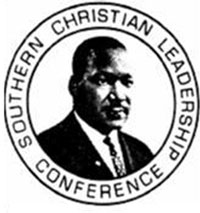SCLC plans ‘Poor People's Campaign'
By Errin HainesAssociated Press | Last updated: Apr 10, 2009 - 4:23:15 PM
What's your opinion on this article?
ATLANTA - The Southern Christian Leadership Conference hopes to mobilize 50,000 people in the Mississippi Delta this summer in a campaign to draw attention to the poverty of a region where some Americans still live in homes with dirt floors and brown water flows from their faucets.

|
SCLC Interim President Byron Clay announced the initiative in an interview with The Associated Press. He said the efforts would be centered not on the nation's capital, but in towns along the soil-rich, resource-poor Delta region.
“We will bring this nation face to face with poverty,” Mr. Clay said. “We are organizing poor people of all colors, to form the kind of beloved community that Martin Luther King Jr. talked about.”
A report published earlier this year by Oxfam America found that residents in the Mississippi Delta are living in conditions similar to the world's poorest countries.
Mr. Clay said the SCLC will hold its Poor People's Campaign from June 19 to June 21, starting in Marks, Mississippi, and ending in Lambert, Mississippi. Mr. Clay said he will meet with leaders in Mississippi for a tour of the Delta region.
Mr. Clay said his respect and admiration for the founders of the SCLC—including Dr. King and the Rev. Ralph David Abernathy—the foundation for his strategy for the organization, which was born in 1957, the same year as Mr. Clay.
Mr. Clay's father, the Rev. Arthur P. Clay, led the Louisiana SCLC. At 15, Mr. Clay became the youngest member of the organization's national board of directors. He says his tenure as president will be temporary, and that he has no aspirations to be the permanent leader of the SCLC.
“I am not interested in promoting Byron Clay,” he said. “I didn't ask for this position, I didn't seek it.”
Mr. Clay was named interim president in February. His predecessor, Charles Steele, of Tuscaloosa, Alabama, resigned after more than four years at the helm. Mr. Steele is credited with giving the SCLC solid financial footing, opening conflict resolution centers overseas and building the group's new headquarters.
Mr. Clay said his aims include returning the SCLC to its Christian roots and recommitting the organization to Dr. King's ideals. He also plans to rebuild chapters and establish new ones, and said that the SCLC is still as relevant as ever, but must get back to its original mission.
“We can never afford to degenerate to a political or civic organization,” he said. “The SCLC has the moral track record to bring forth reconciliation. The nation is ready for the SCLC to be restored to its stalwart role. The issues are there.”
Mr. Clay cited the country's high unemployment rate, the housing crisis and racism as persisting challenges for the SCLC to address, and said that the organization would help the suffering regardless of their race.
“I am always moved when I see people whose lives are stuck in oppressive conditions,” Mr. Clay said. “We are gathering leaders ... to give them an opportunity to see some of the Third World communities in America.”
INSIDE STORIES AND REVIEWS
-
-
About Harriett ... and the Negro Hollywood Road Show
By Rabiah Muhammad, Guest Columnist » Full Story -
Skepticism greets Jay-Z, NFL talk of inspiring change
By Bryan 18X Crawford and Richard B. Muhammad The Final Call Newspaper @TheFinalCall » Full Story -
The painful problem of Black girls and suicide
By Charlene Muhammad -National Correspondent- » Full Story -
Exploitation of Innocence - Report: Perceptions, policies hurting Black girls
By Charlene Muhammad -National Correspondent- » Full Story -
Big Ballin: Big ideas fuel a father’s Big Baller Brand and brash business sense
By Bryan Crawford -Contributing Writer- » Full Story






 Click Here Stay Connected!
Click Here Stay Connected!








